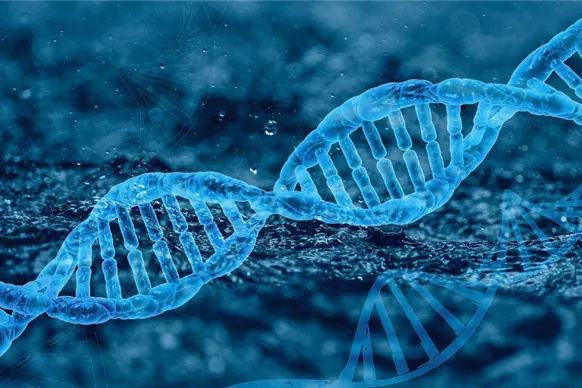
Breakthrough in Regenerative Medicine: Scientists Uncover Genetic Switch for Mammal Healing!
2025-06-30
Author: Daniel
A Revolutionary Discovery in Healing Mechanisms!
Chinese scientists have made an astounding leap in regenerative medicine, unveiling a genetic switch that could dramatically enhance healing capabilities in mammals. This groundbreaking discovery promises to change the game for treating organ damage and traumatic injuries.
Unlocking the Secrets of Tissue Regeneration
In a fascinating study published in the journal *Science*, researchers found that reactivating a dormant genetic switch linked to Vitamin A metabolism allowed rodents to regenerate ear tissue. This is particularly intriguing as mammals, unlike fish and salamanders, typically struggle to fully heal damaged tissues or organs.
The Pinna: Nature’s Ideal Regeneration Model
The ear pinna, known for its varied regenerative capabilities among species, serves as an excellent model for studying the evolution of regeneration in mammals. Study leader Wang Wei remarked, "While regeneration is a beneficial trait, it has been lost in many animal species. Understanding this evolutionary journey offers new insights into the field of regenerative medicine."
Gene Aldh1a2: The Key to Regeneration!
The study highlights that non-regenerative mammals lack adequate activation of the Aldh1a2 gene after experiencing an injury, a significant factor that hinders their regenerative potential. The research team from the National Institute of Biological Sciences, BGI Research, and Northwest A&F University discovered that low levels of the Aldh1a2 gene result in insufficient production of retinoic acid (RA), a crucial component for tissue repair.
Restoring Healing Abilities in Mammals
By activating this gene or supplying RA through a gene enhancer derived from rabbits, scientists successfully restored regenerative abilities in mice and rats. RA signaling plays a pivotal role in various forms of regeneration, including bones, limbs, skin, nerves, and lungs.
A Bright Future for Regenerative Strategies!
This seminal study not only identifies a direct target related to the evolution of regeneration but also paves the way for understanding why some organs or species fail to regenerate effectively. Stella M Hurtley, editor of *Science*, noted that this research could offer new strategies to enhance regeneration in organs that typically do not heal.
The Next Big Leap in Healing?
With this discovery, the future of regenerative medicine shines brighter than ever, potentially leading to groundbreaking treatments for individuals with organ injuries or age-related degenerative conditions. The journey to unlocking the full potential of mammalian healing capabilities has just begun!



 Brasil (PT)
Brasil (PT)
 Canada (EN)
Canada (EN)
 Chile (ES)
Chile (ES)
 Česko (CS)
Česko (CS)
 대한민국 (KO)
대한민국 (KO)
 España (ES)
España (ES)
 France (FR)
France (FR)
 Hong Kong (EN)
Hong Kong (EN)
 Italia (IT)
Italia (IT)
 日本 (JA)
日本 (JA)
 Magyarország (HU)
Magyarország (HU)
 Norge (NO)
Norge (NO)
 Polska (PL)
Polska (PL)
 Schweiz (DE)
Schweiz (DE)
 Singapore (EN)
Singapore (EN)
 Sverige (SV)
Sverige (SV)
 Suomi (FI)
Suomi (FI)
 Türkiye (TR)
Türkiye (TR)
 الإمارات العربية المتحدة (AR)
الإمارات العربية المتحدة (AR)